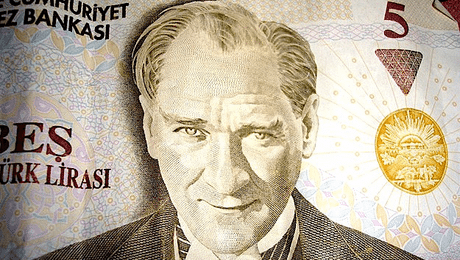By Hermes SolomonPublished on March 31, 2013
GIDEON John Tucker (1826–1899) was an American lawyer, newspaper editor and politician. In 1866, he wrote, “No man’s life, liberty or property is safe while the Legislature is in session.”
Tucker’s statement is certainly true of our legislature, who betrayed citizens by failing to observe laws governing our membership of the European Union. In turn, Cyprus was punished by the troika group, which comprises the European Commission (EC), the International Monetary Fund (IMF), and the European Central Bank (ECB).
Today, the word ‘betrayal’ is on everybody’s lips – demonstrators, bank employees and politicians to name but a few. But the hard facts of the Cyfi-prob suggest otherwise. Comparing President Nicos to Judas is unjustified.
I’ve been living here for ten years and have yet to receive a straight answer to any question posed to officialdom. I initially put their evasiveness down to deviousness/artfulness, but now suspect it might be due to excessive in-breeding and autism.
Historically, our ancestors were known as scavengers of shipwrecks – our inlets/harbours used as ports of convenience for pirates pilfering Ottoman seafaring wealth. The island’s hillbilly farmers survived impoverished on scrubland, bedevilled by disease and plagues of locusts.
Since 330AD we were a people loosely unified under the guidance of the Greek Orthodox Church, and have, in 1700 years, failed to adapt to other than the spiritual. We are still living in trust of yesterday’s Constantinople sustained by easily accessible dosh. After all, what else could our banks have done with those Russian billions other than chuck them at irresponsible scavengers at high interest rates who, like vultures, tore the corpse of this economy to shreds, failing abysmally to invest a single cent in the island’s future and the security of our grandchildren?
Our past sins have now returned to haunt us.
My book, Cyprus on the Rocks, published over two years ago, more than aptly presaged today’s catastrophe. Even the title should have made the literate sit up and take notice. But which politician or economist predicted our own impending doom when we were gloatingly dispatching food parcels to Greece? The cost of fuel has doubled since, during which time our banks persisted in throwing somebody else’s money at an already hugely financially overstretched populace?
There are more black holes in our banking and financial services sector than in the entire universe – so many in fact that our legislature doesn’t even know where to start. Numbers are meaningless; how to resolve bad banking practices and self-inflicted poverty, unanswerable.
How much of depositors’ deposits will be frozen. What will be the eventual limit on withdrawals from ATMs? Who will and who won’t be permitted to transfer ‘their funds’ abroad in what was, up until recently, a ‘free movement of capital’ EU member state? And for just how long will restrictions last?
Ten years ago, passenger ferry services from Piraeus to Limassol were abandoned. Cyprus, without realising it, became an island prison facing Turkey, like Devil Island in French Guiana.
The illegal way out of the Republic is through Ercan Airport or Girne (No, not Tymbou and Kyrenia which, like Constantinople, no longer exist). Those of you with pots of cash at home, and who now hate Cyprus, please leave!
Cyprus has been driven down the drain by powers beyond the ordinary man’s control. She is now floating out to sea. But you could, like me, stay onboard and fight to drop anchor.
The Attorney-general’s job is to protect the innocent at the expense of the guilty and not permit those criminals to escape with their euros, gold bars or dollars to other tax free havens, which will shortly come under the scrutiny of EU officialdom anyway. Passports of all suspects responsible for this mess should be confiscated until an investigation into their presumed illegalities is satisfactorily concluded. This island must be sealed tight, and with the co-operation of the Turkish Cypriot authorities, flight of criminal phoenixes grounded.
It is pointless arguing the legality of recent legislation – fighting for our human rights since 1974 has dug too many of us into the ground on both sides.
But today’s financial fiasco can in no way be compared to 1974. Today, we are stony broke with a declining tourist industry, virtually no manufacturing base and a bankrupt financial services sector.
We must expect to be drip stolen of what money we have left by further devious legislation (taxes) and our banks. Our standard of living will fall rapidly to resemble that of Greece.
We will endure eternal poverty if we continue sending our kids on the streets to demonstrate with placards insisting that the ‘troika get out of Cyprus’, we ‘leave the Eurozone’ and ‘return to the Cyprus pound’ – all nonsense and brainwashing by teachers who should know better.
But where does the island’s future lie? And that is the only question now worth asking and answering.
We will never see the benefits from our gas wealth unless there is a settlement with Turkey over the Cyprob. We must solve the Cyprob yesterday for the sake of the economy tomorrow. This is the only way forward. Accepting a revised Annan Plan, precipitating closer ties with Turkey, will mollify both Israel and the US, even if it leads to weaker ties with Russia and Europe. We are, after all, central to the Near East, at present floating awkwardly in the middle of ‘no-man’s’ sea!
All nationalism has its price and we’ve paid for ours many times over – 1821, 1931, 1960, 1974 and 2013. Enough is enough! Let’s start living in the real world and stop living in the ephemeral (of no lasting significance) past! We have been staring in the wrong direction for far too long.


